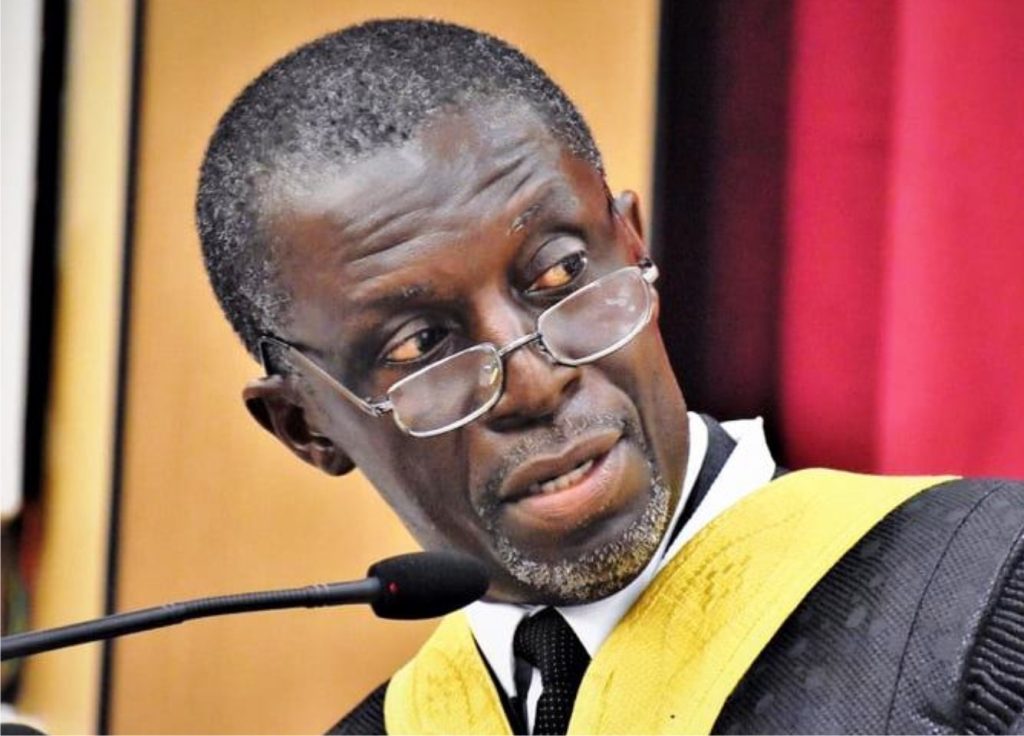Paragraph 1: Allegations and Calls for Justice
Former Solicitor General and prominent human rights lawyer, Cllr. Taiwan Saye Gongloe, has sharply criticized the Liberian government, specifically the Ministry of Justice and the Executive branch, for their perceived protection of Deputy Minister for Youth Development, J. Bryant McGill, against allegations of raping a 14-year-old girl. Cllr. Gongloe has vehemently demanded the immediate arrest, thorough investigation, and prosecution of Minister McGill, asserting that the gravity of the alleged crime necessitates swift and decisive action. Furthermore, he has called upon President Joseph N. Boakai to dismiss Minister McGill from his position, emphasizing that such serious accusations against a public official, particularly one entrusted with youth development, cannot be ignored or downplayed.
Paragraph 2: Justice Delayed, Justice Denied: The Erosion of Rule of Law
Cllr. Gongloe’s critique extends beyond the specific case, highlighting the broader implications of the government’s perceived inaction. He argues that by delaying justice and seemingly engaging in selective application of the law, the government undermines the very foundation of its “Arrest” agenda, which presumably focuses on upholding the rule of law. He warns that such delays not only erode public trust but also create an environment conducive to mob violence, as citizens may lose faith in the formal justice system. Cllr. Gongloe stressed the importance of treating Minister McGill like any other suspect, emphasizing that statutory rape is a heinous crime, legally equivalent to murder under Liberian law.
Paragraph 3: Equal Application of the Law: A Cornerstone of Justice
Drawing upon his own experience as Solicitor General, Cllr. Gongloe recalled instances where high-profile individuals were arrested and subjected to the same legal processes as ordinary citizens. He insists that Minister McGill should be no exception. The principle of equal application of the law, he argues, is fundamental to a just and equitable society. Granting special treatment to those in positions of power not only undermines the rule of law but also sends a dangerous message that certain individuals are above the law, eroding public confidence in the integrity of the justice system.
Paragraph 4: International Implications and Economic Consequences
The potential ramifications of the government’s handling of this case extend beyond national borders, according to Cllr. Gongloe. He argues that if Minister McGill is not held accountable, it could negatively impact foreign investment and tourism. International observers and potential investors are likely to be wary of a country where high-ranking officials are seemingly shielded from justice. Such perceptions can damage a nation’s reputation and deter economic growth. This highlights the interconnectedness of justice, governance, and economic development.
Paragraph 5: The Imperative of Timely Action and Due Process
Despite a statement from the Ministry of Youth and Sports regarding Minister McGill’s “leave of absence,” Cllr. Gongloe maintains that the government’s response is inadequate. He asserts that the minister should have already been formally charged and indicted. He emphasizes the critical role of timeliness in legal proceedings, noting that delays can compromise evidence, embolden perpetrators, and further erode public trust. He calls upon the Ministry of Justice to ensure the credibility of the criminal justice system by demonstrating its commitment to due process and equal application of the law, regardless of the suspect’s position or influence.
Paragraph 6: A Call for Accountability and Transparency
Ultimately, Cllr. Gongloe’s plea is for accountability and transparency in the handling of this sensitive case. He recommends the immediate arrest and detention of Minister McGill to demonstrate that no one is above the law in Liberia. He emphasizes that the government’s response will send a powerful message about its commitment to justice, equality, and the rule of law. This case serves as a critical test of Liberia’s justice system and its ability to hold powerful individuals accountable for their actions. The outcome will undoubtedly have significant ramifications for the country’s future and its reputation on the international stage.


